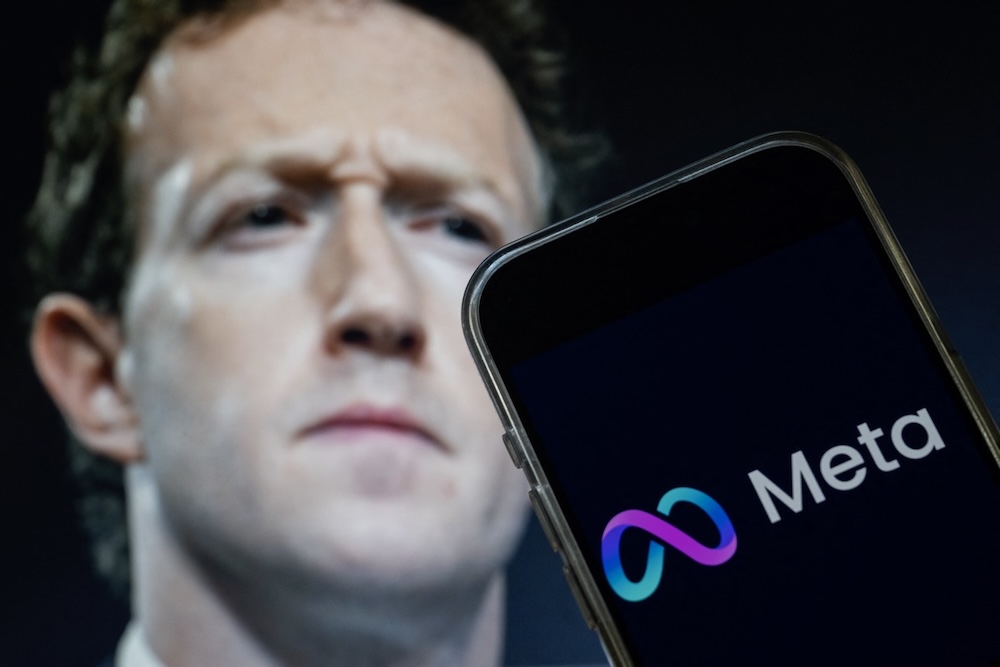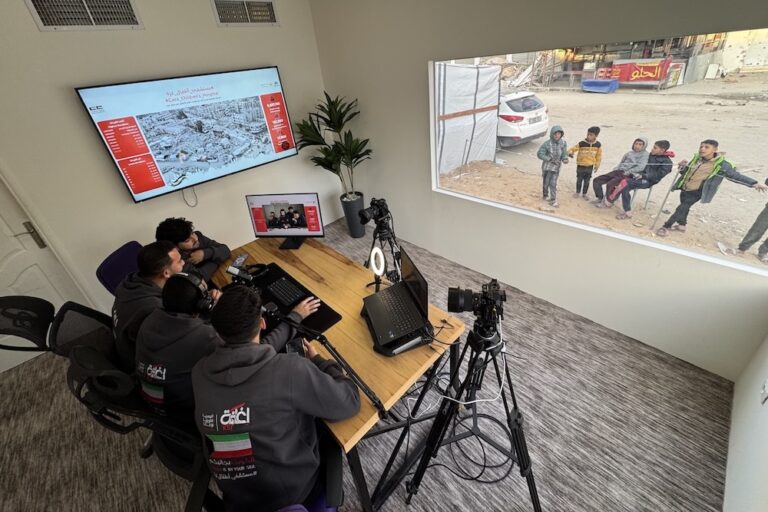IFEX network members are sharing their insights into how Meta's overhauling of its content moderation policies could impact users around the world.
The response to Mark Zuckerberg’s announcement about changes to Meta’s content moderation policies, including ending its contracts with fact-checkers in the United States, was swift. Here, we pull together the first reactions from IFEX members to this latest development in the information ecosphere that will have wide-ranging ramifications on freedom of expression.
On 7 January 2025, Zuckerberg said that Meta is returning to its “foundational principles” of free expression by overhauling its content moderation policies. This would mean the elimination of fact-checking being done by its partners, the revision of its “hateful conduct” policy, and the introduction of the “Community Notes” model of X (Twitter).
Zuckerberg made the announcement two weeks before the inauguration of U.S. President Donald Trump, which raised questions about Meta’s political agenda. He even added that he would work with the new administration in challenging Europe’s new laws and regulations aimed at demanding accountability from tech companies.
Meta acknowledged the shortcomings of its content moderation policies but largely pinned the blame on the supposed “bias” of its fact-checkers. It was silent on how its inaction in the past enabled online and offline violence against vulnerable users, such as the Rohingya in Myanmar, and its systematic censoring of Palestinian voices. It also didn’t mention the psychological impact of fact-checking on human content moderators.
Various stakeholders have expressed concern over Meta’s apparent complete abdication of any commitment to information integrity and keeping the space a safe one for all to engage. The sweeping changes to be rolled out by Meta will affect around three billion users worldwide who rely every day on Facebook, Instagram, WhatsApp, and Threads for news and other relevant information.
IFEX network members, who are involved in the promotion and defense of freedom of expression and information around the globe, are able to bring expertise and thoughtful regional perspectives to this thorny issue. Here are links to some of their recent published reactions to the news:
Collaboration on International ICT Policy for East and Southern Africa (CIPESA): What Does Meta’s About-Turn on Content Moderation Bode for Africa? [14 January 2025]
“Meta’s decision could spur efforts by some African governments to introduce new and more repressive laws to restrict certain types of content and hold platforms accountable for their actions.” Read more here.
R3D (Mexico): Changes in Meta’s content moderation policies raise alarm over potential risks to freedom of expression [10 January 2025]
“At R3D, we believe that a fundamental point in addressing this debate is to focus on regulatory proposals that limit the concentration of corporate power, through measures of competition, deconcentration, and strong protection of personal data that these companies use to develop their products and drive their business model.” In Spanish. Read more here
Derechos Digitales: Meta eliminates fact-checking in the United States – The dangers to the digital ecosystem [8 January 2025]
“The announcement of these changes highlights the vulnerability of online rights when large-scale decisions are made by powerful individuals, possibly guided by political considerations.” In Spanish. Read more here.
Observacom: Meta’s decision vs Latin America: What now? [Video, 15 January 2025]
“Meta seeks to rewrite the rules of digital governance by presenting legitimate regulatory efforts as threats to freedom of expression.” In Spanish, features voices of Martín Becerra, Catalina Botero, João Brant, Vladimir Cortés, Javier Pallero, Patricia Peña, Martha Tudón, Jonas Valente and Gustavo Gómez. View here.
Inter American Press Association (IAPA): The IAPA Expresses Concern Over Meta’s Decision to Eliminate Verification Program [8 January 2025]
“Meta’s decision adds to previous actions by the company in which it downgraded or penalized the journalistic content produced by professional media outlets, which are the main antidote against disinformation.” Read more here.
Karen Percy of Media, Entertainment & Arts Alliance (MEAA): The dangers in the demise of the social media fact-checker [9 January 2025]
“If Mark Zuckerberg’s plan is allowed to go ahead, it will make the jobs of legitimate news providers all the harder and further undermine what is left of Australia’s media industry.” Read more here.
SFLC.in: The implications of Meta’s decision extend far beyond U.S. borders [10 January 2025]
“Replacing professional fact-checkers and relying solely on community-driven notes is risky. While community involvement can be valuable, it’s not enough to identify false information spreading quickly.” Read more here.
European Federation of Journalists (EFJ): Faced with the toxic drift of online platforms, Europe must support journalism and journalists [8 January 2025]
“EFJ is calling on Europe’s political decision-makers to take all necessary measures to support journalism and journalists, against a backdrop of increasing proliferation of disinformation and propaganda on online platforms.” Read more here.
7amleh – The Arab Center for the Advancement of Social Media: Balancing Free Expression & Safety: Concerns & Risks Regarding Meta’s New Policies & their Impact on Palestinians [12 January 2025]
“Without clear safeguards against incitement and systematic bias, these changes could usher in a more dangerous online environment for Palestinians, making it harder for them to exercise their rights to free speech and access to information.” Read more here.
Dionysia Peppa for Social Media Exchange (SMEX): Meta in X’s steps: how new content moderation policy changes endanger the digital space in WANA and abroad [9 January 2025]
“In regions like West Asia and North Africa, the new policy developments can also be instrumentalized by oppressive regimes to subdue dissidents.” Read more here.
ARTICLE 19: Meta: Prioritise human rights, not politics [7 Jan 2025]
“We call on Meta to prioritise human rights over political posturing and finally focus its efforts on ensuring that its content moderation practices are transparent and accountable.” Read more here.
Jillian C. York, Paige Collings, and David Greene for the Electronic Frontier Foundation (EFF): Meta’s New Content Policy Will Harm Vulnerable Users. If It Really Valued Free Speech, It Would Make These Changes [9 January 2025]
“If Meta truly values freedom of expression, we urge it to redirect its focus to empowering historically marginalized speakers, rather than empowering only their detractors.” Read more here.
Daria Dergacheva for Global Voices: From Russia to the EU: The high stakes of Meta’s content moderation shift [16 January 2025]
“We have to support legacy media, which is rooted in fact-checking. We must provide funds to local journalists and negotiate with social media platforms to include their content.” Read more here.
Index on Censorship: Will Meta’s changes to content moderation work? [10 January 2025]
“It is part of a broader pattern of Silicon Valley executives misusing the label ‘free speech’ and the timing of it suggests the motivation is for political gain.” Read more here.
Reporters Without Borders (RSF): Mark Zuckerberg takes Meta’s hostility toward journalism to new level [8 January 2025]
“This ‘Muskification’ of the Meta group’s platforms obeys a political strategy that allows private sector interests to prevail over the need for a public conversation based on facts.” Read more here.



